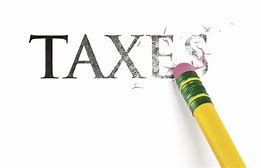
With the return for many to post-secondary studies in September, this month’s Kurve provides a refresher of tax matters as they apply to students.
As a student, you are subject to the same rules pertaining to income, tax deductions, and tax credits as a regular taxpayer. However, there are some specific types of income, tax deductions, and tax credits applicable to students that you should be aware of.
Common Types of Income
You are taxable on most income you receive, including employment income from full or part-time jobs, tips, occasional earnings, and investment income. Examples of common types of income for students is provided below:
Scholarships, Bursaries and Fellowships
Elementary and secondary school scholarships and bursaries are non-taxable. A post-secondary program that consists mainly of research is eligible for the scholarship exemption, only if it leads to a college or CEGEP diploma, or a bachelor, masters or doctoral degree (or an equivalent degree). Post-doctoral fellowships are taxable.
Scholarship Exemption
To claim a scholarship exemption, you must be enrolled in an educational program in which you are a qualifying student in 2017, 2018 or 2019.
If you are considered a full-time qualifying student for 2017, 2018 or 2019, post-secondary school scholarships, fellowships and bursaries received are not taxable up to the total amount required to support you in the program. Consideration must be given to: the duration of the program; any terms and conditions that apply to the award; and the period for which support is intended to be provided by the award.
If you have received a scholarship, fellowship, or bursary related to a part-time program for which you are a part-time qualifying student for 2017, 2018 or 2019, the scholarship exemption is equal to the tuition paid plus the costs of program-related materials.
Research Grants
Research grants are taxable, and reasonable expenses are allowed for travel, lodging, and fees to assistants.
Student Loans
Student loans are non-taxable.
Registered Education Savings Plan (RESP)
When money is withdrawn from the RESP account to be used by the student (beneficiary) for their educational costs, its taxability will depend on whether it is a withdrawal of a contribution amount or a non-contribution amount. The contribution amount is the sum of all the contributions made to the account over the years. The non-contribution amount is made up of the RESP government grants, capital gains (any increase in value of your investments), interest and dividend income earned in the account.
Non-contribution amounts, also referred to as educational assistance payments, are taxable in the year paid. Withdrawals of contribution amounts are not taxable, and deductions are not allowed for contributions made to an RESP.
Gifts and Inheritances
Most gifts and inheritances are not taxable.
Common Deductions from Income
The most common types of deductions that may have particular application to students are moving expenses and child care expense. Other deduction may apply, depending on the particulars of a student’s situation.
Moving Expenses to Attend University or Start Employment Within or Outside Canada
All moving expenses incurred either to attend university or to start employment within or outside Canada are deductible against employment, self-employment or research grant income from the new location if the move is at least 40km for the current location. Students can claim moving expenses for each move. The expenses cannot exceed income from the new location. Excess moving expenses may be carried forward to the following year to deduct against income from the new location. Eligible expenses include all direct expenses (e.g. travel expenses – including gas, meals and lodging, lease cancellation charges and costs of the sale/purchase of the home). All related receipts must be submitted, if requested by the Canada Revenue Agency.
Child Care Expenses
Generally, only the spouse with the lower net income can claim these expenses. However, the spouse with the higher net income may be able to claim the child care expenses if his/her spouse was enrolled in a qualifying education program.
Non-refundable Tax Credits
Non-refundable tax credits allow you to reduce income tax.
Tuition tax credits
A tax credit is available to students for their qualifying tuition fees. To support a tax credit for tuition fees, you must obtain a completed form T2202A, or TL11 from your educational institution. Generally, this form can be downloaded from a student’s online account with the institution (if the student attends an institution outside Canada, he/she will require the institution to complete form TL11). You can claim a tax credit for eligible tuition fees, including library fees, lab fees, examination fees and computer fees, paid for courses you had taken during the year. Your official tax form will indicate the amount of eligible tuition fees that you paid for that calendar year.
G enerally, a course qualifies for a tuition tax credit if it was taken at a post-secondary education institution or for individuals 16 years of age or older at the end of the year, it develops or improves skills in an occupation and the educational institution has been certified by Employment and Social Development Canada (ESDC).
enerally, a course qualifies for a tuition tax credit if it was taken at a post-secondary education institution or for individuals 16 years of age or older at the end of the year, it develops or improves skills in an occupation and the educational institution has been certified by Employment and Social Development Canada (ESDC).
Any unused tuition amounts are transferable to a supporting spouse, parent or grandparent up to a maximum of $5,000 per person. The student must complete the designation on the back of Form T2202 / TL11 to transfer unused amounts to a supporting person. The tuition credits that cannot be used or transferred in the current year, can be carried forward and claimed by the student in a subsequent year. If an employer (including a parent’s employer) paid the tuition, it cannot be credited to the student unless it is included in the student’s (or parent’s) income.
Education and Textbook Tax Credits
In 2017, the federal education and textbook tax credits were eliminated. This measure did not affect the ability to carry forward unused education and textbook credit amounts from years prior to 2017.
Interest on Students Loans
You may be eligible for a tax credit for the interest you pay on federal and provincial student loans (not private lender loans). This interest cannot be transferred to another person and can be carried forward five years. When applying for a student loan, grant or subsidy, students may be asked to provide a proof of income statement to your financial institution. CRA now provides the option to print the proof of income statement through their website or by calling CRA’s automated Tax Information Phone Service at 1-800-267-6999.
Rent and Accommodations
The provinces of Ontario and Manitoba provide refundable property tax credits on rent/property taxes paid in the year for residents of the province on December 31. The province of Quebec provides a property tax refund under similar circumstances. Note that cancelled cheques, or receipts, must be kept available to prove payments were made in the year, if required by CRA.
Life- Long Learning Plan
You may be able to “borrow” funds from your Registered Retirement Savings Plan (RRSP) in order to pay expenses incurred when enrolled with a designated educational institution.
Planning Opportunities
In years when you expect your personal credits (e.g., basic, tuition, etc.) to offset personal tax on income earned, complete form TD1 so the employer will not withhold tax. This may arise in taxation years where you are in school eight months and working for only four months. As a result, you will not have to wait until April 30 of the following year to obtain a tax refund and, consequently, will improve your current cash flow.
Consider the timing and nature of withdrawal of funds from your RESP. Consider withdrawing as much of the taxable (non-contribution) portion of your RESP as you can tax free. For example, maximize withdrawals of the taxable portion of your RESP in a low-income year. Alternatively, maximize withdrawals of the non-taxable (contribution) portion of your RESP in a high income year.
***
During your pursuit of higher education, ensure you take advantage of the tax breaks available to students. As you progress through your various life stages and events, ensure you stay informed and educated on tax and financial matters in relation to these stages. This knowledge will not only help ensure you stay compliant with your tax filing obligations, but also help to ensure you minimize taxes. If you need assistance with tax compliance or planning, contact us. We are here to help.

Author

Partner
